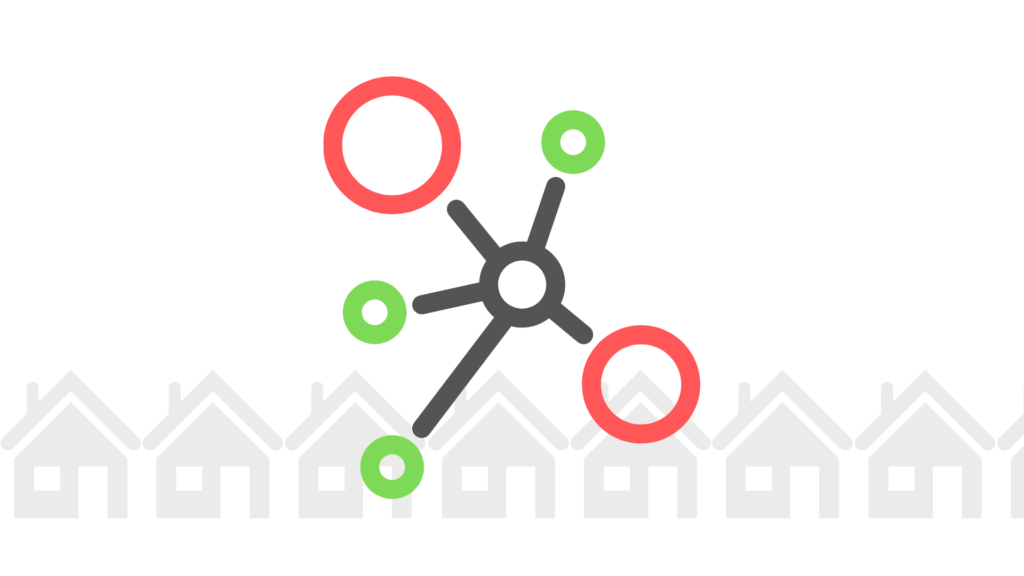Are you curious about building a referral real estate business? The real estate industry is large and provides many lucrative opportunities for motivated individuals who are willing to put in the work. However, lead generation has always been a top struggle. If you can build a lead generation system that works, you can become a referral real estate agent. This means you will be able to help people and make money without having to handle the paperwork and the minutia of closing transactions. This article explores what a referral real estate agent does and the necessary steps to becoming one.
What Is a Referral Real Estate Agent?
So, what is the job of a referral real estate agent? Think of this critical role as being an agent’s agent. In this type of real estate career, you earn money by referring clients to other real estate agents who are best suited to meet their needs best. After the transaction is completed, you will collect a referral fee for your assistance. The main responsibilities of a referral real estate agent include:
- Generating high-quality real estate referrals and client leads
- Building a business network of various real estate markets
- Working closely with clients to make sure you refer them to the correct type of realtor
How To Become a Referral Real Estate Agent
One of the primary benefits of starting a career as a referral real estate agent is scalability. A referral real estate agent is not limited by the amount of time in a day, booking meetings and seeing properties. If you are able to achieve it, you can manage any arbitrary number of leads, which you can then funnel to the right agents. However, it’s important to know that becoming a successful referral agent takes time, dedication, and effort. Below are the steps you’ll need to take to get started in this career:
1. Obtain Your Real Estate License
The first step for all real estate professionals is getting an official license. The requirements vary from state to state, so it’s essential to familiarize yourself with the local laws regarding licensing. Most states require the same general steps:
- Complete a pre-licensing course (either online or in person)
- Take and pass the state licensing exam (most consist of 80 to 100 multiple-choice questions)
- File an official licensing application and pay the required fees (most include fees for the application and a background check)
2. Join a Local Real Estate Brokerage
Next, you’ll need to find and join a local real estate brokerage, which is necessary if you wish to earn a commission or fee for your successful referrals. The primary role of a broker is to ensure that you comply with state and local laws and supervise the quality of your work. While there are many different types of brokerages you can choose from, the most common include:
- National Franchises: Well-known national brokerages include Coldwell Banker and Keller Williams. These franchises are well-established in the realtor industry and have stellar reputations.
- Boutique Brokerages: If you’re new to the real estate industry, consider joining a boutique brokerage, which will provide you with more personalized guidance and training.
- Virtual Brokerages: The main benefit of joining a virtual brokerage is its low overhead costs, which means you get a larger share of the fee split.
3. Build a Network of High-Quality Leads
The most crucial aspect of your job as a referral real estate agent is generating high-quality real estate leads. There are many ways to getting real estate leads, from online marketing to cold calling. If you want to become an effective real estate referral agent, you will need to build a system that works for you.
Building a Lead Generation Machine
Lead generation in real estate is no simple task. In fact, this is the biggest challenge that agents and brokerage struggle with today. After working with thousands of agents, we’ve learned that there is no shortcut to finding clients. Buying leads doesn’t work. Advertising doesn’t work (certainly not in all markets or business cycles). Door-knocking and cold-calling can work in some cases. But not before beating you down and wasting most of your time. The best method for generating leads is the tried-and-true method of building relationships.
The good news is that you don’t have to chart this challenging course alone. Parkbench is our favorite solution that is guaranteed to help you connect with people in your community. And all without the risk of rejection. They’ve built a digital platform that combines the best of Groupon, Yellow Pages, and Eventbrite, but hyper local. When you sponsor a neighborhood on Parkbench, they create and manage a website for your community. You, then, get to contact local businesses, community organizers, etc. to feature them and help them use it in service of their goals. Businesses get to promote themselves and offer discounts to local residents. Locals get access to news, deals, and information about their community. And you get to build a relationship with all of them. A relationship that starts with a positive exchange where you offer something of value first.
It’s a simple solution. And it works.
In fact, they guarantee at least six transactions in your first year alone. If you use their system and don’t get results… for whatever reason… they’ll not only give you your money back, they will double it. No questions asked.
Disclaimer: they only work with one agent per neighborhood.
Book a free demo to see if yours is available.
4. Develop a Ranking System for Your Leads
Generating leads is only part of the equation. You then want to categorize them so you can better follow up. Here’s a quick method you can use for ranking each lead source:
- Level One: Close friends and family, past or present clients you have a good relationship with, business contacts, and others in influential businesses
- Level Two: Sources who may send you referrals, but not without additional effort or interactions (Level Two sources may only send you referrals if you meet certain limitations)
- Level Three: Any sources which could potentially send you referrals because they know of you by name or business, but you don’t have a good idea of if, when, or how this may occur
How To Obtain High-Quality Referrals and Real Estate Leads
Asking for referrals takes a certain level of finesse. Even the nicest lead-in can seem pushy, and you don’t want people to think you’re only contacting them because you want something. Use these tips to make sure you build a genuine relationship with your clients:
- Don’t skip the small talk: Be sure to have small talk with your clients or sources for at least five or ten minutes before you ask for a referral.
- Reach out directly: It’s vital to reach out directly and personally to your sources, especially Level One leads. Try to aim for as many in-person meetings as possible. Of course, treating your leads to brunch or dinner is always a plus.
- Maintain regular contact: It’s never a good idea to limit contact with your sources to times when you want something. Instead, maintain regular contact with your referrals and spend time chatting and asking how their lives/families are doing.
- Be direct: When you finally ask for a referral, be direct. Don’t beat around the bush or be vague. Instead, try, “I would appreciate your help to expand my business. Can you please refer me to…”
Grow Your Business With Us at Local Leader®
At Local Leader®, we provide free resources, insights, and strategies to help real estate professionals grow their business. Subscribe to our newsletter for the latest updates.

